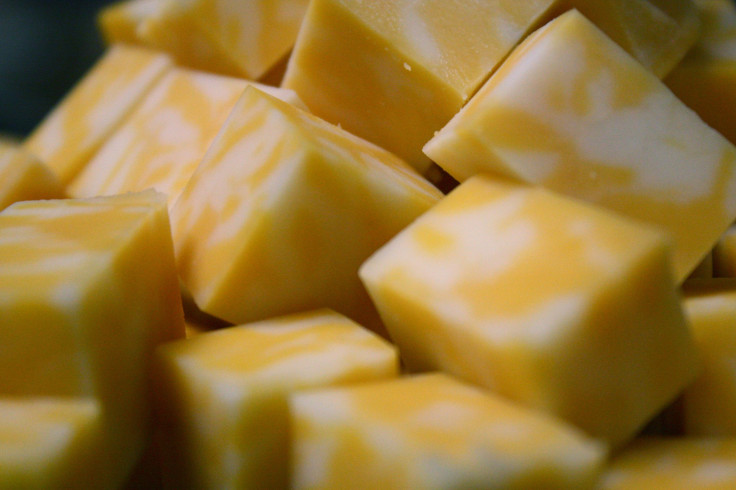Kill Cancer Cells With Cheese? Natural Food Preservatives In Dairy May Help Fight Against Disease

Cheese may work as a natural cancer fighter, according to a new study published in the Journal of Antimicrobial Chemotherapy. A group of researchers from the University of Michigan School of Dentistry were searching for answers in dairy products when they stumbled upon cheese's ability to fight 30 types of cancer.
The naturally occurring food preservative, nisin, is a colorless and tasteless powder that grows on Brie, Camembert, and cheddar, as well as other dairy products, the NY Daily News reported. Previous research has suggested high dosages of nisin can improve oral health, but researchers only measured these effects among various foods at a quantity of .25 to 37.4 milligrams (mg). The present study isolated and purified nisin, and fed a dosage of 800 mg in the form of a milkshake to mice with neck tumors.
After just nine weeks, the nisin treatment killed 70 to 80 percent of the cancer cells. Researchers also found nisin fought the deadly, antibiotic-resistant bacteria MRSA — life-threatening bacteria known to cause deadly infections.
It's a huge finding, yes, but the study's lead author Dr. Yvonne Kapilia, a professor at the University of Michigian School of Dentistry, said the results are too limited to tell is they act the same way in humans. According to Kapilia, nobody has found a bacterium in humans or animals resistant to nisin, which means it can stand the test of time as a treatment.
"Mother Nature has done a lot of the research for us, it's been tested for thousands of years," Kapilia said in a press release. "The application of nisin has advanced beyond its role as a food biopreservative. Current findings and other published data support nisin's potential use to treat antibiotic resistant infections, periodontal disease and cancer."
Nisin works with a one-two punch, binding with bacteria and working before antibiotic-resistant superbugs have the chance to act. Antibiotic-resistant bacteria can be very difficult to treat, so nisin would work to destroy colonies of bacteria that group together to stop antibiotics. And if humans were given nisin in the form of a milkshake, too, it would equal approximately 20 times more than what's found in cheese.
Kapilia said: "While promising, the results are small and in mice only, so it's too early to say if nisin will act the same way in humans."
Source: Kapilia Y, et al. Biomedical applications of nisin. Journal of Antimicrobial Chemotherapy. 2016.



























